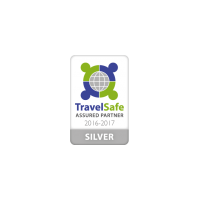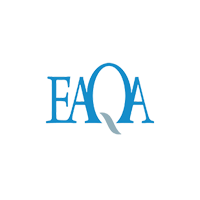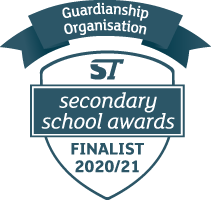Safeguarding Policy
This policy is mandatory for all staff to read and recommended for parents. This policy relates to all students under our care regardless of gender, age, ethnicity, nationality, religion or disability. All children and young people have the right to protection from any kind of abuse and the right to exist in a safe and friendly environment whilst in the care of WHG.
WHG is an AEGIS (Association for the Education and Guardianship of International Students) Gold-Standard accredited guardianship organisation that cares for students who need to appoint an Educational Guardian because of their age or the wish of their relatives. WHG looks after students studying in boarding schools who may on occasions use homestays. Additionally, we organise homestay placements for long term day students. Our students vary in age from 7 to 18 years old.
WHG is committed to the ongoing promise of safeguarding students. To ensure that all staff receive the most up to date information, this policy is reviewed and redistributed annually as standard. Should a significant change take place, the policy is immediately redistributed thereafter.
The following policies accompany our Safeguarding Policy and will be referred to if necessary:
What is child safeguarding?
“The process of protecting children from abuse or neglect, preventing impairment of their health and development, and ensuring they are growing up in circumstances consistent with the provision of safe and effective care that enables children to have optimum life chances and enter adulthood successfully“
Safeguarding responsibilities are with every member of staff who will have the appropriate training in place to react to safeguarding concerns. Partners Peggotty Moore & Will Hume alongside Development Manager Gail Millat are your Designated Safeguarding Leads (DSL), trained in Level 3 Safeguarding and will oversee safeguarding training and concerns. In addition, all staff at our Head Office in Bournemouth and our Local Guardians are trained to level 2. This training is mandatory and renewed every 2 years. Lastly, we encourage all of our host families to undertake a free level 1 online safeguarding course.
All staff and homestay families are encouraged to read Keeping Children Safe in Education a link to this can be found here.
WHG aims to provide the highest level or care to students, to support this we enclose the following policies and minimum requirements & a continual membership to AEGIS who accredit our standards. WHG will also liaise with outside agencies such as the Local Safeguarding Partnership or Multi-Agency Safeguarding Hub.
The Local Safeguarding Partnership (LSP) is made up of the local authority chief executive, the accountable officer of a clinical commissioning group, and a chief officer of police. The core objectives of the LSP is to coordinate local work to safeguard and promote the welfare of children and to ensure the effectiveness of what the member organisations do individually and together. A full list of LSP regional contacts can be found here:
The Multi-Agency Safeguarding Hub (MASH) is a team which brings together agencies such as The Police and Social Services & Schools (and their information) in order to identify risks to children at the earliest possible point and respond with the most effective interventions.
What is abuse?
https://www.nspcc.org.uk/preventing-abuse/child-abuse-and-neglect/“Child abuse is any action by another person – adult or child – that causes significant harm to a child. It can be physical, sexual or emotional, but can just as often be about a lack of love, care and attention. We know that neglect, whatever form it takes, can be just as damaging to a child as physical abuse. An abused child will often experience more than one type of abuse, as well as other difficulties in their lives. It often happens over a period of time, rather than being a one-off event. And it can increasingly happen online.“
Definitions of Abuse
Symptoms of Abuse
The signs of child abuse aren't always obvious, and a child might not tell anyone what's happening to them. Some of the things to look out for:- Acts out excessive violence with other children.
- Lacks social skills and has few if any friends.
- Significantly underweight but eats well when given food.
- Reluctant to go to school.
- Is reluctant to get changed for sports etc.
- Wets or soils the bed.
- Drinks alcohol regularly from an early age.
- Is concerned for siblings or peers without explaining why.
- Becomes secretive and reluctant to share information.
- Talks of running away.
- Shows challenging/disruptive behaviour at school.
Raising a safeguarding concern
Staff and host families should be aware that children may not feel ready or know how to tell someone that they are being abused, exploited, or neglected, and/or they may not recognise their experiences as harmful. This should not prevent staff or host families from having a professional curiosity and speaking to a DSL if they have concerns about a child.
When a safeguarding concern is raised, WHG guarantee to:
- Ensure every the child’s wishes and feelings are taken into account when determining what action to take and what services to provide.
- Provide support to staff that are aware or are the subject of the concern.
- Not prematurely jump to any conclusion until a full investigation has taken place internally or with the support of outside agencies.
- Make sure records are kept and those concerned are kept up to date during the investigation.
- Take appropriate action once the investigation has concluded.
Staff and homestays are reminded that any safeguarding information must be kept confidential.
Your Local Guardian will be your main point of contact but in addition anyone can contact the DSL’s as below:
Our Head Office number of 24/7 and you will always be able to reach a DLS via this number +44 3 458 686 688 Peggotty Moore and Will Hume are also your Prevent leads.
https://www.legislation.gov.uk/ukdsi/2015/9780111133309/pdfs/ukdsiod_9780111133309_en.pdf
If there is a safeguarding concern regarding a member of WHG, we would encourage you to contact a WHG DSL but you may also contact the Local Authority Designated Officer (LADO) in Dorset where our Head Office is based. +44 1202 817600 / [email protected] / out of hours emergency number +44 1202 738256
Further information on the Pan-Dorset LADO can he found here:
https://pdscp.co.uk/working-with-children/allegations-against-staff/
The DSLs will decide how and with whom information will be shared. In most cases your WHG DSL will liaise with the DSL at the child’s school and potentially the Police and Social Services depending on the severity of the concern. Parents will always be informed of any safeguarding concern that is raised. Agents will be informed unless WHG are not authorised by an outside agency, this tends to only happen in cases where the LSP / MASH wish to undertake an investigation before any information sharing can happen.
Any concern that is an immediate risk to the child will be referred to the Police without parental consent. All safeguarding concerns (even low-level concerns & if no further action is needed) are archived in full in a students file on the WHG system and a record of the concern is entered in to our online safeguarding folder which is password protected only accessible by Peggotty Moore and Will Hume.
- a clear and comprehensive summary of the concern
- details of how the concern was followed up and resolved
- a note of any action taken, decisions reached and the outcome
Cases are closed marked with the following outcome:
- there is sufficient evidence to prove the allegation
- there is sufficient evidence to disprove the allegation and there has been a deliberate act to deceive or cause harm to the person subject of the allegation
- there is sufficient evidence to disprove the allegation
- there is insufficient evidence to either prove or disprove the allegation. The term, therefore, does not imply guilt or innocence
- to reflect cases where there is no evidence or proper basis which supports the allegation being made.
Responding to a child making an allegation of abuse
Safeguarding is the responsibility of ALL members of staff & host families. All staff & host families are in a position of trust, and therefore all are required to take a shared responsibility to safeguard children and young people. All staff & host families will be made fully aware of their duties in safeguarding students and responding to allegations of abuse or neglect. The role of a Local Guardian is to build a trusted relationship with their students which will facilitate communication in the event that one of their students will need to disclose anything.
Any member of staff or host family with an issue or concern relating to child protection, including but not limited to allegations of child abuse, should discuss it immediately with the Designated Safeguarding Lead (DSL) on +448 458 686 688.
Anyone who hears an allegation of abuse against or has concerns about the behaviour of another member of staff must report the matter immediately to a DSL. If the DSL is unavailable, or involved in an allegation, the matter must be referred immediately to another DSL. WHG has three DSLs working from head office.
A concern against the management of WHG should be forwarded to AEGIS (Association for the Education and Guardianship of International Students) +44 (0) 1453 821293. At no point should an attempt be made to investigate the situation. This will be undertaken by NSPCC/Social Services and/or the Police as necessary.
All concerns or disclosures of abuse should be acted upon.
- Recognise signs of vulnerability
- Respond to student concerns
- Record student concerns
- Report student concerns
- Refer student concerns
How to respond to a disclosure
Stay calm, sometimes issues are raised which, whilst seemingly complex, are generally safeguarding matters and not necessarily a child protection issue. These matters should be responded by offering a supportive response and where necessary or relevant, refer them to the Local Guardian & DSL.
When a student self-discloses a matter that constitutes a potential or alleged situation of abuse, the staff member must take the student to a private place within view but out of ear-shot of other people. Promises of confidentiality must not be given. Tell the student that you have a duty to pass on the information, only to those who need to know.
- Listen carefully to what is said
- Do not interview them, but ask what happened, keep questions to a minimum and obtain sufficient facts to understand what is being alleged
- Allow the child to continue at their own pace
- Ask questions for clarification only and always avoid asking leading questions (questions that suggest a particular answer).
- Do not make assumptions or offer explanations
- Remember that an allegation of child abuse may lead to a criminal investigation, so do not attempt to personally investigate any allegations of abuse
- Reassure the child that they have done the right thing in telling you
- Tell them what you will do next and with whom the information will be shared with a DSL at Head Office in Bournemouth
Recording a report
A call must be made to notify a WHG DSL and the head of pastoral care at the school. A full incident report must be made as soon as possible detailing the nature of the allegation. Record in writing everything that was said, using the child’s own words. Note place, date, time, and names of persons to whom the information was given.
Do not confront any person against whom an allegation has been made. The DSL will guide you in dealing with any allegation or suspicion of abuse, and if applicable, report allegations and incidents of abuse to the LADO (Local Area Designated Officer) at the local County Council Children’s Social Services.
WHG recognises that the Children Act 1989 states that the welfare of the child is the paramount concern. It also recognises that hasty or ill-informed decisions in connection with a member of staff can irreparably damage an individual’s reputation, confidence and career. Therefore, those dealing with such allegations within a centre, shall do so with sensitivity and will act in a careful, measured way and in accordance with our procedures.
If you are ever in doubt as to what to do, please consult a member of the Safeguarding Team at Head Office.
Child on Child abuse.
All staff should be aware that children can abuse other children (often referred to as child-on-child abuse), and that it can happen both inside and outside of school or college and online.
All staff and homestays should be clear as to WHG’s policy and procedures with regard to child-on-child abuse and the important role they have to play in preventing it and responding where they believe a child may be at risk from it.
All staff should understand that even if there are no reports in their schools/colleges or homestays, it does not mean it is not happening, it may be the case that it is just not being reported. As such it is important if staff or homestays have any concerns regarding child-on-child abuse they should contact the one of the Designated Safeguarding Leads.
It is essential that all staff understand the importance of challenging inappropriate behaviours between children that are abusive in nature. Downplaying certain behaviours, for example dismissing sexual harassment as “just banter”, “just having a laugh”, “part of growing up” or “boys being boys” can lead to a culture of unacceptable behaviours, an unsafe environment for children and in worst case scenarios a culture that normalises abuse leading to children accepting it as normal and not coming forward to report it.
Signs of child on child abuse:
- Bullying (including cyberbullying, prejudice-based and discriminatory bullying)
- Abuse in intimate personal relationships between children (sometimes known as ‘teenage relationship abuse’)
- Physical abuse such as hitting, kicking, shaking, biting, hair pulling, or otherwise causing physical harm (this may include an online element which facilitates, threatens and/or encourages physical abuse)
- Sexual violence, such as rape, assault by penetration and sexual assault; (this may include an online element which facilitates, threatens and/or encourages sexual violence)
- Sexual harassment, such as sexual comments, remarks, jokes and online sexual harassment, which may be standalone or part of a broader pattern of abuse
- Causing someone to engage in sexual activity without consent, such as forcing someone to strip, touch themselves sexually, or to engage in sexual activity with a third party
- Consensual and non-consensual sharing of nude and semi-nude images and/or videos (also known as sexting or youth produced sexual imagery)
- Upskirting, which typically involves taking a picture under a person’s clothing without their permission, with the intention of viewing their genitals or buttocks to obtain sexual gratification, or cause the victim humiliation, distress, or alarm, and
- Initiation/hazing type violence and rituals (this could include activities involving harassment, abuse or humiliation used as a way of initiating a person into a group and may also include an online element).
What to do if there is a concern about a member of staff?
If staff have a safeguarding concern or an allegation is made about another member of staff or homestay harming or posing a risk of harm to children, then:
- This should be referred to a DSL immediately
- In the event of a concern/allegation about a DSL, or a situation where there is a conflict of interest in reporting the matter to a DSL, this should be reported directly to the Local Authority Designated Officer(s) (LADOs) +44 1202 817600 / out of hours emergency number +44 1202 738256
- If staff have a safeguarding concern or an allegation about another member of staff or homestay that does not meet the harm threshold, then this should be shared in accordance with the school or college low-level concerns policy, found here.
Policy Updated
10thOctober 2025
Policy Review Date
1stOctober 2026






